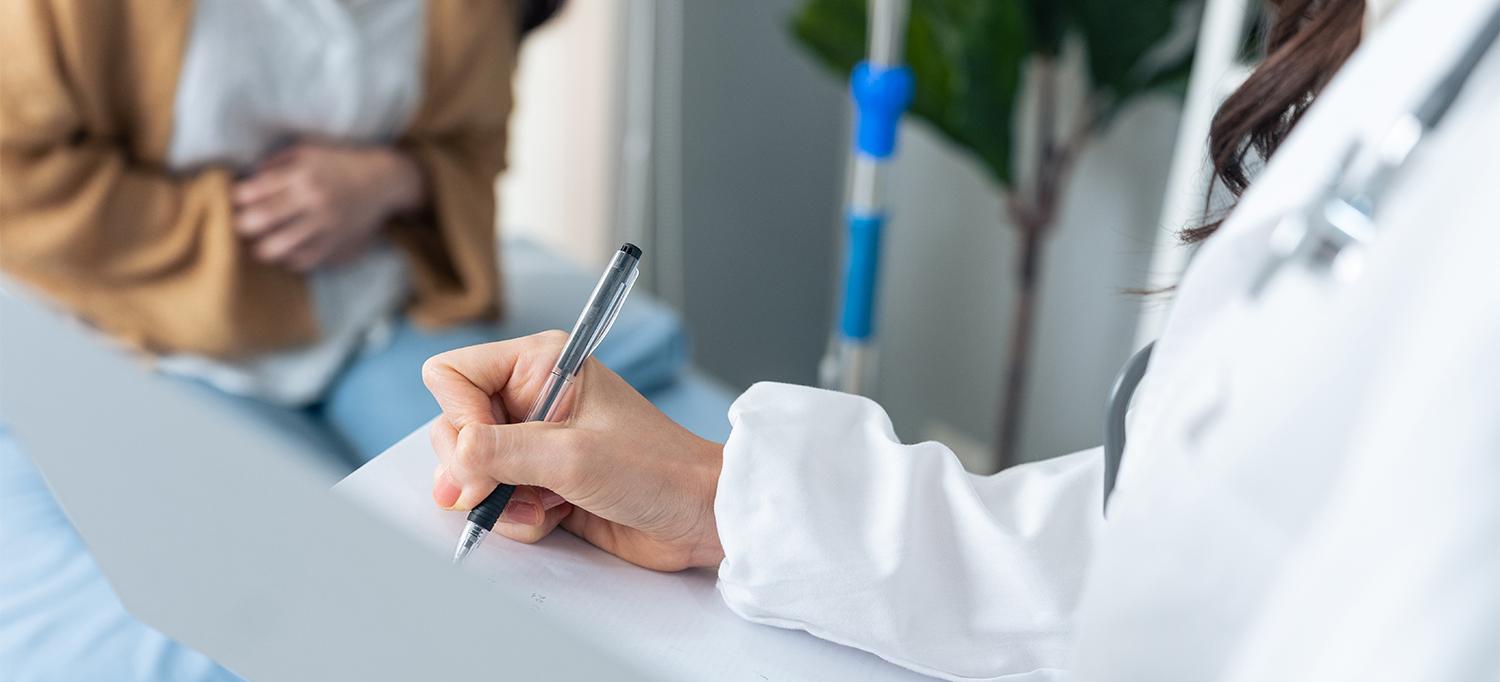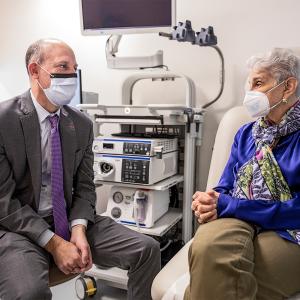Maybe it’s just stress? Or something you ate? The symptoms of this chronic illness, an autoimmune disease, can be easy to explain away—at first.

Photo: Kiwis/Getty
Life is busy and you have a lot going on. Still, you find yourself spending more time in the bathroom and noticing the same symptoms, such as diarrhea and stomach pain. It’s probably just stress, you tell yourself.
But those symptoms could indicate a condition to take more seriously, such as inflammatory bowel disease (IBD). The condition affects 3 million Americans, and as many as 70,000 new cases are diagnosed in the United States annually.
“IBD is an autoimmune illness, in which for whatever reason, your own body starts to attack parts of your intestine,” says Ariela Holmer, MD, a gastroenterologist at NYU Langone’s Inflammatory Bowel Disease Center and clinical assistant professor in the Department of Medicine at NYU Grossman School of Medicine. There are two main types of IBD: ulcerative colitis (UC), which targets the large intestine, or colon, and Crohn’s disease (CD), which can affect any part of the gastrointestinal (GI) tract.
“It’s common to ignore or even normalize IBD symptoms, telling yourself it’s just stress or something you ate,” Dr. Holmer says. “Some of my patients get used to needing to rush in and out of meetings all day to get to the bathroom. That’s not normal. By the time people come to see a specialist, their symptoms can be severe.”
How to Distinguish Between IBD and IBS
It’s common to mistake IBD for irritable bowel syndrome (IBS) because symptoms can overlap. IBS is defined by its symptoms: stomach pain with diarrhea, constipation, or both. What determines a diagnosis of IBD is gut inflammation. “A telltale sign of IBD is the inflammation we see when we evaluate a patient’s intestines with imaging, such as a CT scan or MRI, or the ulcers we see during a colonoscopy. Ulcers are a sign IBD is advancing,” Dr. Holmer says. With IBS, however, the intestines will remain ulcer-free.
VIDEO: NYU Langone gastroenterologist Dr. Ariela Holmer explains the five symptoms of inflammatory bowel disease you should always consult your doctor about.
IBD, without proper treatment, can advance and cause complications that may require surgery. If you have any of the following five symptoms of IBD, don’t ignore them. See a gastroenterologist to rule out IBD or get a diagnosis and treatment plan, the goal of which is to put the disease in remission.
1. Having Blood in Your Stool
“Blood in your stool—rectal bleeding—is never normal,” Dr. Holmer says. It can be a sign of the active inflammation of IBD, especially UC. If you have received a diagnosis of IBD, rectal bleeding can signal that your disease is not well controlled and that your treatment plan needs to be adjusted. Blood in the stool can also be a sign of other diseases, including colon cancer.
Your gastroenterologist will likely order a colonoscopy, bloodwork, and stool testing to check for inflammation in the GI tract and determine what’s causing the blood. “Biopsies during a colonoscopy can also help clinch the diagnosis of inflammatory bowel disease,” Dr. Holmer says.
Colonoscopy is the gold standard for diagnosing IBD and screening for colorectal cancer, which allows doctors to remove any polyps—growths that may become cancerous over time—in the colon or rectum. “We know colorectal cancer has been on the rise in younger adults,” Dr. Holmer says. American Cancer Society guidelines recommend starting colon cancer screening at age 45 for people at average risk. Evidence suggests that beginning screening then may prevent more cases and reduce the number of colorectal cancer deaths.
IBD can increase the risk of colon cancer, which is the third most common cancer among men and women in the United States. That means it’s important to know whether you have IBD so you can have the recommended surveillance colonoscopies more often.
2. Nausea and Vomiting After Eating
Nausea and vomiting after eating can be a symptom of IBD, especially Crohn’s disease. “Crohn’s disease can lead to long-term inflammation that can cause a stricture, which is a narrowing in the small intestine that can lead to a blockage over time,” Dr. Holmer says. A stricture can prevent food from traveling normally through the digestive tract, causing nausea and vomiting.
A stricture can slowly develop over time without you even knowing it. “Patients can have vague symptoms, such as nausea and vomiting here and there for many years,” Dr. Holmer says. “They don’t know they have Crohn’s disease because nobody’s looking for it. Then, one day, they have a lot of nausea and vomiting, which means the stricture may be very narrow and needs immediate medical attention, which may include surgery.”
3. Persistent Joint Pain with Rashes
Knee, wrist, or lower back pain that doesn’t go away and red patches on your skin that come and go can be signs you have IBD or that your IBD medication has stopped working. “Joint pain and rashes can be signs that the inflammation associated with IBD is presenting outside of the intestine,” Dr. Holmer says. If you see a dermatologist for a rash or a rheumatologist for joint pain, you may be referred to a gastroenterologist for a colonoscopy to rule out IBD. “We work really closely with dermatologists and rheumatologists,” Dr. Holmer says. The good news? Medications are available that can treat skin rash, joint pain, and intestinal inflammation simultaneously.
4. Ongoing Stomach Pain That Increases
It’s common to get a stomach bug and experience abdominal pain every once in a while. But for people with IBD, abdominal pain can linger and increase over time. Ongoing abdominal pain can be a signal of an IBD flare, an intestinal blockage, or a severe infection of the colon. “You should never ignore abdominal pain that doesn’t get better over time, or gets worse,” Dr. Holmer says.
5. Stool Urgency That Impacts Your Daily Life
“Urgent, explosive stool volume that impacts your quality of life is a huge red flag for IBD,” Dr. Holmer says. “Patients will tell me, ‘I couldn’t sit through midterms’ or ‘I couldn’t get through dance practice because I had to get to a toilet.’ Some patients say they’ve had to wear an adult diaper because their stools became so urgent.” Stool urgency may even wake them up in the middle of the night. “It’s not normal, yet patients try to normalize it by telling themselves it’s just IBS or stress,” Dr. Holmer says.
If you have one or more of these five symptoms, see a gastroenterologist. “We don’t have a cure for IBD just yet,” Dr. Holmer says, “but we do have great medications, and more in the pipeline, to keep people in remission and help you feel great again.”

